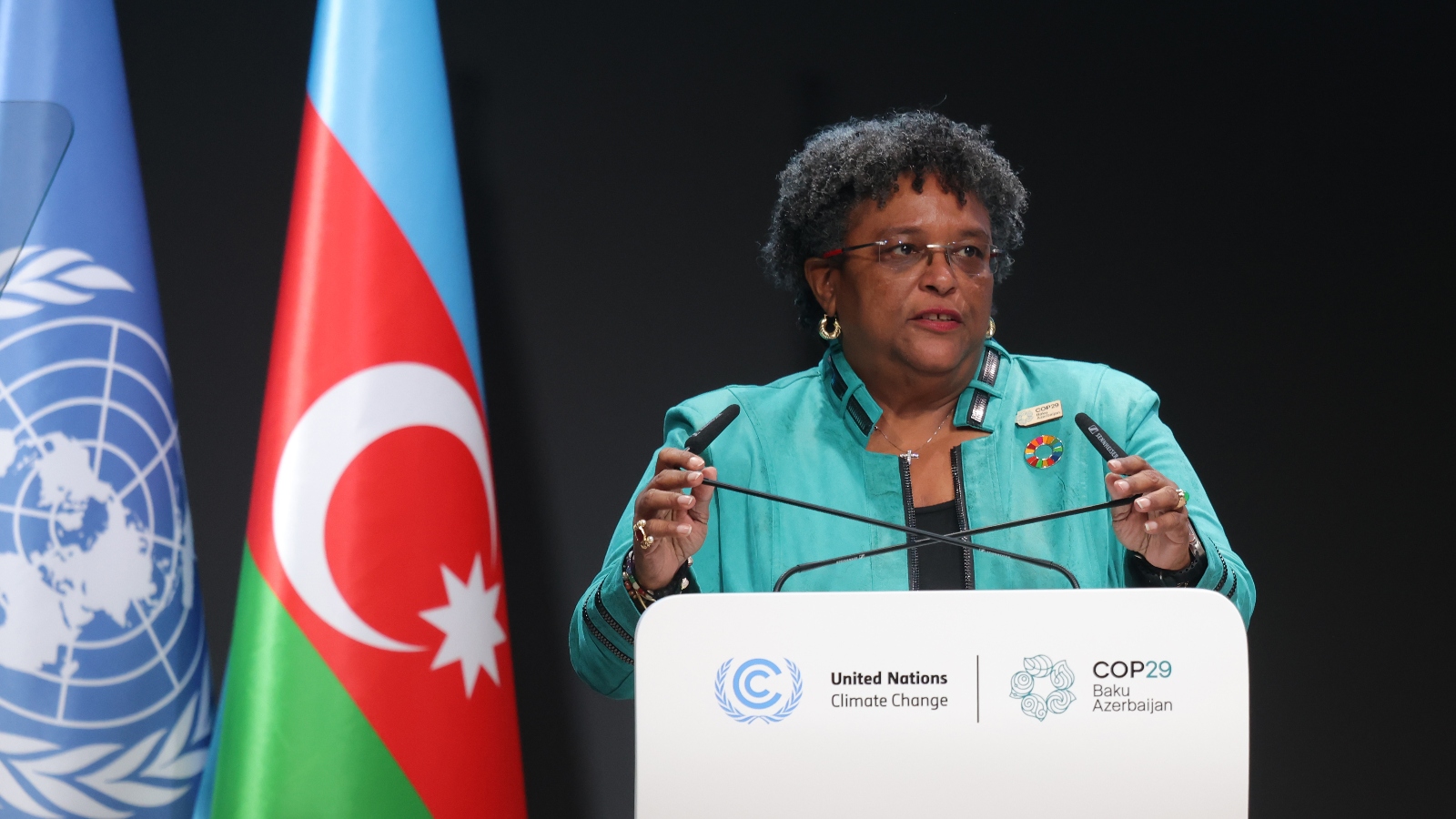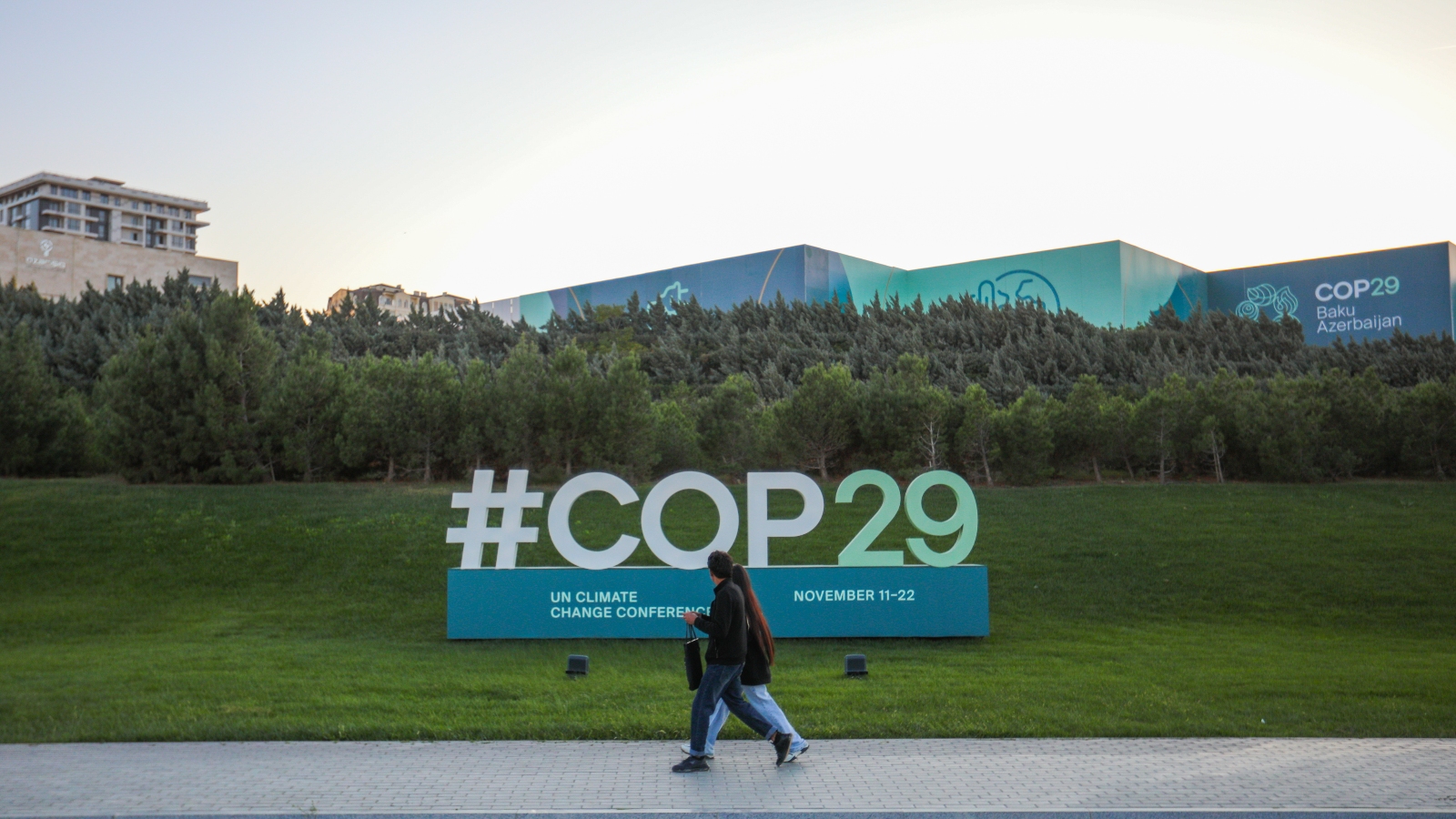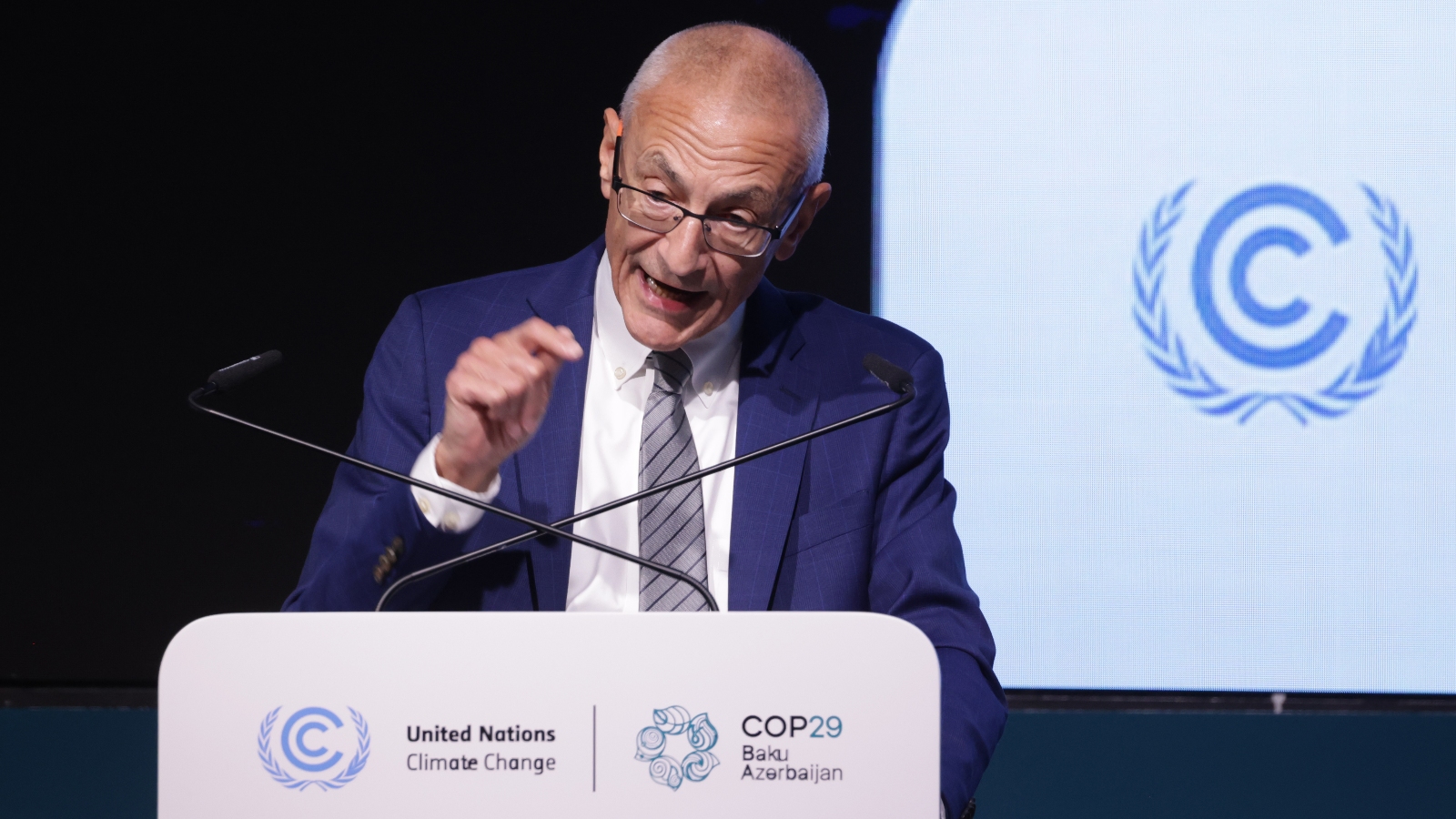Imagine you go online to book a flight. When you pay, you notice one additional line item next to the standard taxes and fees: Something called a “global solidarity levy” has added an extra dollar to your $200 flight. That half-percent is going to Somalia, where it will help pay farmers who have lost their goat herds in a severe drought — which was supercharged by the global warming that your flight is accelerating — and are now without food or water access.
This is the vision of a new effort underway at United Nations climate talks in Baku, Azerbaijan. This year’s conference, which is known as COP29, is all about money: which countries will pay to help fight climate change, how much money they will send, and what that money will accomplish. Past efforts to fund decarbonization and climate resilience in the developing world have all but failed. Wealthy nations have delivered money in a piecemeal, opaque manner, leaving trillions of dollars of unmet needs in the world’s poorest nations.
There are hints of a new system emerging on the sidelines of the COP29 conference. A small group of nations is advancing a proposal for a set of worldwide taxes on high-polluting industries, which could reap billions of dollars in steady money for recovery efforts in disaster-ravaged countries. The governments of France, Kenya, and Barbados are using COP29 as a springboard to develop what they call a “global solidarity levy,” which would impose half-percent taxes on sectors such as aviation and shipping.
The idea got a big boost from U.N. secretary general António Guterres on Tuesday. In his address to the negotiators assembled at COP, Guterres urged them to consider “tapping innovative sources, particularly levies on shipping, aviation, and fossil fuel extraction.”
There is an urgent need for funding to address “loss and damage,” or the disaster-related destruction fueled by carbon pollution. Wealthy countries have admitted their responsibility to provide this funding — since they have emitted orders of magnitude more carbon than most of the world — but they haven’t yet followed through: Last year, around a dozen countries pledged a combined $700 million to a new loss and damage fund administered by the World Bank, and more pledges may follow at COP29 this year.
There is broad agreement that this piecemeal approach is unsustainable — not least because of domestic political volatility, including the likelihood that the U.S. will cut off new deliveries of climate aid when Donald Trump assumes the presidency next year. Then there’s the fact that a country that just got destroyed by a typhoon can’t afford to wait 10 years for a recovery grant to wind its way to its treasury. Finally, there are relatively few incentives for rich countries to pay for disaster relief abroad, relative to other climate-related ventures: A loan to build a solar farm might pay for itself when the project starts to generate power revenue, and an adaptation grant might lead to economic benefits later on if it protects a supply chain or makes a farm more resilient. Disaster recovery aid, on the other hand, doesn’t pay for itself.
The proposed global solidarity levy takes a different approach: Rather than encouraging big economies to contribute with one chunk of money at a time, the proposal would use taxes to generate consistent revenue for a relief fund. The France-Barbados-Kenya task force is in the midst of studying which industries to tax, and it expects to release a final proposal early next year.
Sectors like aviation and shipping, which cross national borders, are obvious candidates, but the task force has also looked at taxing plastics and cryptocurrency, given their large pollution and energy footprints, respectively. The task force will likely begin by targeting a single industry, such as aviation, and urge climate-ambitious governments to pass a tax on transactions in that industry, which can then be used as models for more and more governments to follow.
“The ‘polluter pays’ principle has guided us thus far,” said Barbados prime minister Mia Mottley, an influential leader in climate finance debates, in a speech touting the forthcoming proposal at COP29. “If you have contributed to the problem, you should contribute to the solution.”
The levy proposals could raise as much as $350 billion if they were adopted globally, Mottley added. Even if just a few dozen governments implemented a tax on one of these industries, they could raise more money per year than all rich countries’ combined donations to the loss and damage thus far. The task force currently has 13 members, including France, Spain, and the Marshall Islands.
Many nations already collect industry-specific taxes. For example, more than 30 countries tax at least some financial transactions at around 0.5 percent. In the United Kingdom, a “stamp duty” on stock transactions brings in around $5 billion per year, and France and Switzerland raise about $1 billion per year each by taxing their own financial sectors. Several European countries have also rolled out flight ticket taxes of around $2 to $7 over the past two decades, with Portugal routing revenue toward projects that reduce emissions.
But financing global climate aid in this manner raises a number of new challenges. Existing transaction taxes typically raise money to benefit the taxpayers in a given country, but “solidarity levies” that send money to faraway places might engender domestic backlash. Countries may also be wary of scaring off private investment and stunting economic growth, especially given that the tax is unique in not providing any material benefit to the country collecting it (other than potentially helping to reduce global emissions).
Other international entities are pursuing similar but less radical measures. The International Maritime Organization, the U.N. body that regulates the shipping industry, is working on its own carbon tax to levy on the carbon-intensive tanker fleet that moves 80 percent of the world’s freight. That tax will be finalized by next year and could end up at anywhere between $50 and $300 per ton of carbon dioxide. But the Maritime Organization’s secretary general told Grist that it will use the money to decarbonize the shipping industry, rather than aid developing countries.
“The loss and damage conversation, that’s more a historical conversation, and we don’t have that conversation,” said Arsenio Dominguez, the secretary general of the International Maritime Organization, in an interview at COP29. “Our goal is to collect the necessary funds to support shipping decarbonization and the shipping transition.”
Dominguez added that he doesn’t oppose countries’ attempts to find more money for loss and damage funding, but he views his organization’s effort as ambitious in its own right.
Given that a shipping carbon tax is already in the works, it’s likely that the France-Barbados task force will endorse a levy on another industry where regulators have been less ambitious on climate, such as aviation, or where there is no global regulatory body, such as finance.
Imposing such a fee might be controversial in the United States, but for other countries it might be a savvy political move, according to Rachel Cleetus, a finance expert at the Union of Concerned Scientists, a climate advocacy organization. Wealthy governments have to scrape through their budgets to find billion-dollar overseas aid donations, but a new levy on an industry like aviation could fund those efforts continuously. Plus, a country could set it up without going through the consensus-driven U.N. process.
“In the near-term, the main role it could play is to create a coalition of the willing, a set of countries that would do this together,” she said. “It’s a different kind of negotiation.”
Cleetus cautioned that even these levies likely wouldn’t be a full substitute for direct public finance from developed countries. If these countries don’t pay their fair share, she said, there will still be large unmet needs in the Global South.
“Whenever you hear this conversation about finance, very quickly you’ll hear conversations about reforming the multilateral system and adding innovative sources,” she said. “But people see it as a substitute — and it’s not, it’s a complement.”



